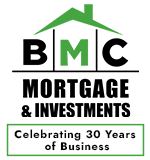Understanding Equity Lending In Canada
'%3E%3Crect x='0' y='0' width='1024' height='476' fill='%23beb1a5'/%3E%3Cg transform='scale(4.00) translate(0.5 0.5)'%3E%3Cg transform='translate(255.00 83.55) rotate(91.00) scale(71.54 31.06)'%3E%3Cellipse fill='%235b2400' fill-opacity='0.50' cx='0' cy='0' rx='1' ry='1'/%3E%3C/g%3E%3Cpolygon fill='%236d3222' fill-opacity='0.50' points='-11.09,134.00,125.03,73.93,36.78,83.76,50.78,107.02'/%3E%3Cpolygon fill='%23d8dee0' fill-opacity='0.50' points='-16,102 251,-16 -16,-15'/%3E%3Cg transform='translate(198.58 18.28) rotate(91.25) scale(16.75 47.00)'%3E%3Cellipse fill='%23ffab56' fill-opacity='0.50' cx='0' cy='0' rx='1' ry='1'/%3E%3C/g%3E%3Cpolygon fill='%23536170' fill-opacity='0.50' points='74,55 31,38 24,65'/%3E%3Cpolygon fill='%23230800' fill-opacity='0.50' points='180.42,116.99,143.99,121.63,116.34,128.70,207.24,101.84'/%3E%3Cg transform='translate(200.41 76.10) rotate(295.48) scale(23.94 18.32)'%3E%3Cellipse fill='%23e6f5fb' fill-opacity='0.50' cx='0' cy='0' rx='1' ry='1'/%3E%3C/g%3E%3Cellipse fill='%23c5ddec' fill-opacity='0.50' cx='138' cy='99' rx='56' ry='15'/%3E%3Cg transform='translate(166 76) rotate(189) scale(30 5)'%3E%3Crect fill='%23000000' fill-opacity='0.50' x='-0.5' y='-0.5' width='1' height='1'/%3E%3C/g%3E%3Cpolygon fill='%23576672' fill-opacity='0.50' points='110,100 184,92 146,107'/%3E%3C/g%3E%3C/g%3E%3C/svg%3E)
Home equity is the amount of money that you, not the bank, own in relation to your house. If you own your house outright, then you own all
of its equity. If you have paid down half of the principal on your mortgage, then you hold a 50% equity stake in your home. If you own
equity in your home and need money for one reason or another, home equity lending might be right for you. Contact us
to learn more.
Types of Home Equity Loans
Lenders offer a range of products when it comes to home equity lending. The three main types of loans that you will find are the
following:
1.HELOC
-
HELOC stands for home equity line of credit. A HELOC is credit issued to you by the bank that you are required to pay back with interest.
This type of loan is issued in the form of checks or a credit card that you can use to make purchases as you need them. These loans work
well when you are unsure of the full amount you will need because you will only have to pay back and pay interest on the money that you
spend or borrow.
- HELOCs can be difficult for people on fixed incomes because they have variable interest rates, and it can be hard to budget.
-
A HELOC is a flexible way for people with good credit and income histories to borrow against their house at lower rates than a traditional
credit card.
2. Second Mortgage
-
A second mortgage is similar to a HELOC in that you are expected to pay the balance back with interest. When you take out a second mortgage
you have the option to refinance a portion of the principle that you have paid off. You can also take out a second mortgage without any
equity in your home, but you will have to qualify for the larger loan or a subsequent mortgage to the one that you already hold.
-
Second mortgages tend to have high interest rates. Your interest rate will be lower the higher your equity share, income, and credit score
are.
- Second mortgages are usually better for people with poor credit looking to improve their scores.
3. Reverse Mortgage
-
A reverse mortgage is a different animal when it comes to equity lending. You are not required to pay reverse mortgages back. Free money,
you say? Not quite. First, only people over a certain age will qualify for a reverse mortgage. When you take out a reverse mortgage, you
essentially turn full ownership of your home over to the bank. The bank will determine how much equity you have in your home and how much
the home is worth. You will be paid in monthly installments by the bank until the agreed-upon equity has been spent, and then the house
wholly belongs to the bank.
- You can also receive a lump sum from the bank.
-
Reverse mortgages are great for older people that have paid of their homes and wish to increase their cash flow. To discharge the debt, all
you have to do is vacate the house and allow for it to be sold.
Which Type is Right for You?
Equity lending can help you get the money you need for any reason. Even once you understand the basic differences between the basic types,
it can still be difficult to decide what you need without expert advice. Contact us to sit down with one of our mortgage brokers to see
which equity lending option will suit your needs best.
 780-413-1684
780-413-1684
780-413-1684
780-413-1684

